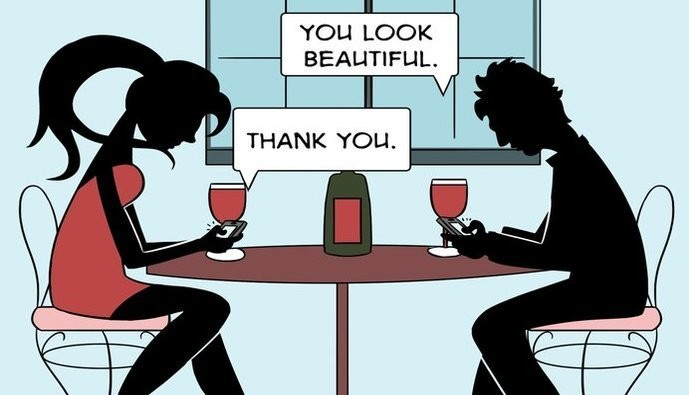Blog #8: Privacy, Online & Off
In the digital age we live in now, internet privacy has become a major issue that affects every part of our personal and professional lives. As we move through the interconnected web of the internet, we leave a trail of information that can be gathered, analyzed, and possibly used by corporations, advertisers, and even bad people. Online privacy is essential because it keeps our personal information safe, keeps us in control, and protects our basic rights in a world that is becoming more linked and analyzed much more than we are aware of. In this age of constant connectivity, it's important to understand and prioritize internet privacy not only for your own safety but also for keeping a free, safe, and democratic society.
The TED Talk that stood out most to me was Juan Enriquez’s speech, called “Your Online Life, Permanent as a Tattoo”. This was a very thought provoking speech for me. He compared 4 topics that seemed completely unrelated, but when he brought them all together, it made perfect sense and was scary to listen to. He talked about big data, tattoos, immortality, and the Greeks. He compared the permanence of tattoos on our bodies to the permanence of our online presence. Everything we post online is there forever, our online presence will live on forever… much longer than our bodies will last. Our online presence is immortal. (https://www.ted.com/talks/juan_enriquez_your_online_life_permanent_as_a_tattoo). This really terrifies me, even though I am aware of it. As a young college student, I have multiple social media platforms such as Snapchat, Instagram, and Tik Tok that I post to and communicate on often with people. I share many aspects of my life and personality on these social media platforms as well. It seems harmless, but recently, the permanence of my online presence has hit me.
I recently had a job that required a background check. Of course, I have had nop issues with the law. However, I didn’t fully comprehend that every single one of my social media presences would be getting observed and analyzed by my potential future employers. When I was in highschool, I generally posted whatever I wanted on social media with no concern of the consequences. I felt that it wasn’t “permanent”, and I could just delete things later on if I wanted. I was so wrong.
These issues greatly affect me, my friends, and my family. As more of our lives move online, the lines between public and private information are blurring. This means that we need to be extra careful to protect our personal information and follow ethical standards online. Privacy isn't just a matter of comfort; it's a basic human right that's important for each person's freedom and respect. An interesting quote from The Medium.com really got me thinking and put my thoughts perfectly into words. “We recklessly share information online because we want to interact, we want to share, we want something cheaper, we want to get something faster…. the list goes on and on because the technological developments made us hungry for being connected all the time. We are so used to how things work online, we do not pay attention to the “details” like what kind of protocols companies hold over our so-called “private” data” (https://medium.com/@esra.onal/the-story-behind-nothing-ever-gets-deleted-from-the-internet-82fed2abffa9). There are photos of us and personal matters that were once put out onto the internet that we may have posted on private accounts or later on deleted, but those pieces of information will be out there forever, whether we think they are or not. These can be accessed by people that may want to use our information for malicious use, or our own presence can get us in trouble in the future, like a background for a future employment as I had. Even though I checked out perfectly fine, the entire experience really made me think over what exactly I decided to put out on the internet.
The government is a key part of keeping our digital data safe in our ever growing digital world. To protect our digital privacy well, the government should pass and enforce strong laws that set clear standards for data protection, such as strict rules for how both public and private entities can collect, store, and share data. Also, governments should spend more security systems and research to strengthen national defenses against cyber threats and reduce the risk of data breaches and unauthorized access to sensitive information. I also believe that it is the government's duty to increase public awareness, especially younger generations, about the risks to their digital privacy and the best ways to keep their online presence safe. It's important to find a balance between security and people's rights, so government activities must be clear, accountable, and subject to the right checks and balances. In the end, it should be the government's job to make sure that digital privacy stays a basic right for all citizens. This should be done by building trust in the online community and keeping it safe from violations.
To protect our privacy online, we each need to take steps on our own. First and foremost, we should be more thoughtful about the information we share online and limit the amount of personal information we share on social media sites and other websites. We should use two-factor authentication and strong, unique passwords should be used to protect our online accounts from being hacked. Also, keeping our devices and apps up-to-date and upgraded helps protect us from security holes. Lastly, being mindful of privacy settings and policies on the sites we use is very important. We should continue to push for stricter privacy rules that can help make the Internet a safer place. In a digital age where personal information is a valuable tool, taking these precautions can go a long way toward protecting our online privacy.

Comments
Post a Comment